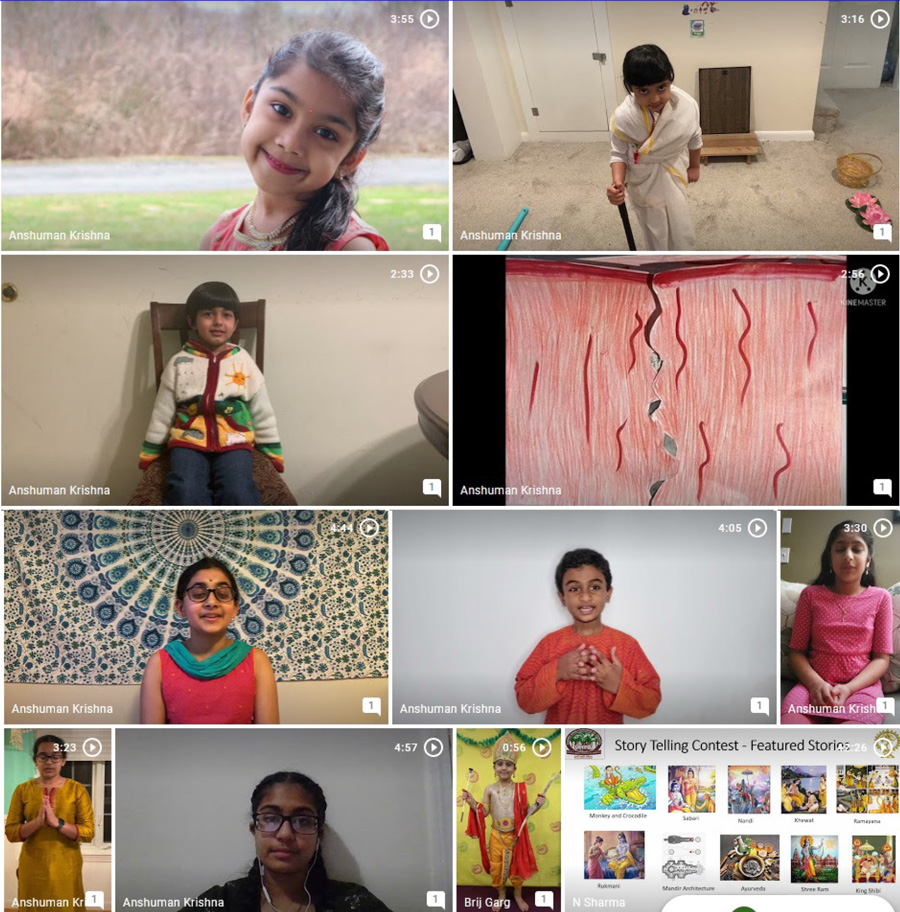K is for Kindness. Those who are kind to us hold a special place in our heart. We fondly remember their acts of kindness, be it an encouraging smile, a helping hand, or a shoulder to cry on. Of what use is beauty, wealth, physical strength or status in society if the heart is dry and uncaring? If there is no desire to alleviate the suffering of another; if there is no concern to wipe the tears of fellow man, we are not deserving of being called ‘human.’
Amongst all the people living in the world we find varying levels of kindness, with God leading us by example. Whether or not we acknowledge it, we are all heavily in debt for all that God has done and is doing for us. So kind and merciful is He that He does not require even gratitude. Keeping this in mind, we must learn to be kind simply because it’s our duty.
Kindness starts in the mind. Always think kind thoughts. Be kindhearted. Your kind thoughts will turn into kind actions. Do not look for acknowledgment when you do someone a favor. Do not think highly of yourself for being kind. Being kind does not prove your greatness. True greatness lies in not having the pride of being kind.
L is for Loyalty. Individuals, nations, businesses and political parties alike desire loyalty. Airlines show appreciation to loyal customers and reward them in many ways. Employers reward loyal employees with bonuses and vacations. Being loyal to a party helps a person make political strides.
What does Loyalty mean? It means giving support in good and bad times. Just as birds flock to the fruit-bearing tree without invitation but fly away when the tree is bare, there are those who will befriend you when you are on the mountaintop but abandon you when you are down in the valley. If you wish to know who your true friends are, look at who is standing with you even in your darkest hour.
How can you be loyal in everyday life? You can give your honest feedback to friends and family. If you are concerned about a good friend’s actions, tell her so. You can be loyal by refusing to gossip about friends and coworkers. When you commit to a cause, see it through. When you take on a job, make sure you stick with it.
M is for Modesty. In the midst of loud, brash and in-your-face culture, modesty is often mistaken as a weakness. It is anything but. Whether inner or outer, modesty is the strength of an individual. When you dress modestly, you show that you respect your body and do not wish to display it for all to see. It also shows that you are confident enough not to be pressured into wearing inappropriate clothing just to fit in or to please others.
We admire modesty in others. When you compliment someone on her achievements, which answer would you prefer? “I have worked hard and I deserve everything that has come my way.” Or, “Thank you; I really enjoy what I do.”
The Supreme Lord teaches His children modesty and sets a great example for all to follow. After giving a lecture to the citizens of Ayodhya, Bhagvan Shri Ram said, “Just because I am your king, do not think that I expect or instruct you to obey Me. I have said what I needed to say. You are free to do as you please.”
Being modest does not mean that you deny your talents and accomplishments. It simply means that you give the credit to God who has enabled you to see, hear, think and take decisions.
N is for Nonviolence. Every creature, big or small, is a child of God, and God resides in the heart of all His children. Even trees are living creatures that have a miniscule amount of intelligence. Even they experience pleasure and pain. Insects have more intelligence than trees; birds have still more intelligence; animals are more intelligent than birds. The human intelligence and potential is certainly the greatest of all creatures. Using our intelligence, we put even very large creatures to use. We use them as beasts of burden and also earn money by putting them in the zoo and the circus.
Being the most powerful of all creatures, it is our duty to be compassionate to not only fellow humans, but to all creatures. There are some instances in which violence cannot be avoided, such as cutting trees and chopping vegetables for consumption
The rule of thumb is to have a mind full of kind and benevolent thoughts. Non-violence will then become a natural way of life.
O is for Optimism. Whether you are nurturing a family, a corporation or even yourself, you are a leader, and leaders need to be optimistic. In the face of a bleak situation, you can either give up and wait for the sky to fall, or you can keep smiling, remain active and bide your time until things look up once more. Everyone’s life is full of ups and downs. If you happen to be in the valley today, you will be on the hill one day soon. If you resign yourself to failure, you are sure to fail.
To become optimistic, always look at the positive side of things. This is not to say that you should become unrealistic. Not at all! It simply means that while you are aware of the possible setback or failure, you choose to work towards success and choose to anticipate success
Think of the people in history who accomplished great things in life. We would not know of Gandhi if he had become pessimistic and given up his peaceful fight for India’s freedom. We also would not know of the Wright brothers if they had given up after multiple failures to take flight. Edison’s success can be attributed to his consistent optimism
P is for Patience. In this day and age, the word ‘patience’ sounds odd to many people. Technological advancements have been occurring at a dizzying pace and we have become accustomed to instant soup, instant nails, fast food and instant gratification. No one wishes to play the waiting game.
The dangers of impatience are seen on the highway where a driver becomes so annoyed at having been cut off that he takes revenge by cursing and even shooting at the offender. The impatient patient at the doctor’s office cannot seem to relax and worsens his condition by stressing himself out even further. And when it comes to interpersonal relationships patience is a nurturing agent. Impatience contributes to the death of a relationship.

We should learn to be patient by observing Nature. Look around and you will see that Nature simply will not be rushed. The gardener waters the plants, but flower buds appear only when it’s the right season.
Q is for Quietness. We are constantly exposed to sounds from digital devices, traffic noises, construction noises and loud conversations. Exposure to these sounds affects our ability to concentrate and take the right decisions. Even sleep time is disturbed by the presence of the humming and buzzing sounds from the devices that are with us all day and that we cannot do without even at night. Quiet moments in which there are no distractions allow us to remain calm throughout the day. At the end of the day, they help us learn lessons by processing the events of the day peacefully.
Noise kills creativity, and quietness encourages it. The masterpieces in art, architecture and literature were created by those who scheduled daily quiet time to work on honing their skills.
Quiet reflection is essential for a true seeker. In quiet moments the seeker connects with his inner self, and he can then hear the still, small voice of God.
R is for Respect. Respect is something we desire for ourselves but do not always give to others. Every person deserves our respect. Elders must be respected for their life experiences and the wisdom we can acquire from them. Instead of regarding them as wise teachers, society often casts them aside and generally ignores them.
Respect ought to be given to each and every individual and to all creatures. God lives in the heart of everyone, and every person has a lot of goodness within. Every child of God is unique and special.
Respecting Nature and the environment is a critical issue these days. We see the damage we have caused by abusing Mother Earth. Pollution and needless wastage are examples of the disrespect and disregard we have shown for Nature.
Respect starts in the mind. If it’s only for show, you may fool the other person but you will eventually turn into a hypocrite. Genuine respect for others makes us into better human beings. Our thoughts make us into who we are. The person who truly appreciates and respect others, is gradually molded into a beautiful person who sees goodness in all and learns from everyone.





![[ India Today ] Ohio senator JD Vance thanks wife, a Hindu, for helping him find Christian faith](https://hinduvishwa.org/wp-content/uploads/2024/06/us-senator-jd-vance-reveals-how-his-hindu-wife-usha-helped-him-find-his-christian-faith-image-re-272530504-16x9_0-120x86.webp)










